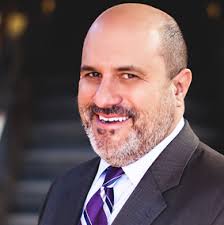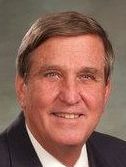DENVER — A decades-old law that required a percentage of sales and use taxes be used on transportation needs but was repealed by a Democrat-controlled Colorado General Assembly is about get a second life and possibly go before the voters in November.
An initiative filed with the Colorado General Assembly Legislative Council on Friday starts the process that will lead to petitions and eventually a public vote if sponsors of the idea gather the needed signatures, roughly 126,000.

The measure, to use existing sales and use tax revenues for roads, was filed by Jon Caldara and Sen. John Cooke, R-Greeley. It would divert current revenue to transportation rather than raise new taxes in the years following, during what many believe will be at minimum a recession with thousands out of work and businesses lost because of the government’s response to COVID-19.
Caldara is the president of the Independence Institute* and no stranger to the initiative process. Most recently Caldara successfully saw Proposition 116 pass in 2020, which lowered the state income tax, and Proposition 104 in 2014, which forced teacher union negotiations into the public process, and was passed overwhelmingly by voters.
Cooke currently represents Weld County in the state senate and was a sponsor in 2018 on what was that year’s Senate Bill 1, also a transportation measure. Caldara is hopeful voters will see the positive need for this initiative too.
“The reason our roads are so terrible is because (in 2009) the legislature (repealed Senate Bill 1),” Caldara said. “This was a great funding mechanism. All we want to do is put it back and make road funding a budget priority again.”
Senate Bill 1 was a transportation funding bill passed in 1997 and signed into law by then Democrat Gov. Roy Romer. In simple terms, the law set aside 10 percent of all revenue obtained through sales and use taxes on automobile and related items for transportation needs. Sixty percent diverted to the state highway fund, 22 percent to counties and 18 percent to municipalities.

In an eight year period while in effect, it generated $1.4 billion for highway needs.
However, in 2009, after Democrats took control of the House and Senate, they repealed the bill and redirected the funds to other projects.
Caldara, who has been advocating for years to spend more on transportation through existing revenue sources, said reinstating the bill will force the legislature to prioritize its spending, pointing out that at the time it passed it was a bipartisan effort supported by Democrats including co-sponsors former U.S. Sen. Mark Udall, who at that time represented Boulder in the House, and Congressman Ed Perlmutter, who represented Jefferson County in the Senate.
Caldara’s last attempt at a citizen-led initiative to change how transportation is funded was in 2018 with “Fix Our Damn Roads,” which would have bonded $3.5 billion to be paid back through the existing revenue. Although it failed, it caused a split vote among voters and kept a new tax for transportation from passing as well.
This time he thinks he’s found the answer in a legislative-led effort that has a proven track record for success.
“It brings back a budgeting rule that was supported at the time by Gov. Roy Romer,” Caldara said. “They all voted for this back in the day. It just brings that back. Money that people spend for transportation, use those sales taxes on transportation. Our roads suck because they took away this budgeting rule.”

The initiative is a mirror of an attempt by Sen. Paul Lundeen, R-Monument, last session to reinstate the measure. The fiscal note predicted around $225 million a year to transportation needs, but it died in the State, Veterans & Military Affairs committee, otherwise known as the kill committee, where the majority assigns bills to be heard that it has no plan on debating.
One co-sponsor on the first Senate Bill 1, Tom Norton, a Republican from Greeley, said this is an initiative he most certainly could support.
“This would contribute tremendously to our problem,” Norton said. “It could be a substantial amount to fund a quarter to half of our needs without an increase in taxes.”
Norton, an engineer by trade, served in the state legislature for 12 years including as Senate President from 1992-1998, and was the executive director of the Colorado Department of Transportation from 1999-2006. He said what Democrats are trying to do now is solve problems they predict will happen 10 years from now.
They are not solving “the problems of congestion and safety on our existing infrastructure,” Norton said. “Solving that problem now would do more for our air quality than hoping to change people and the way they operate in the future. We need a solution now.”
* Independence Institute is the publisher of Complete Colorado.


